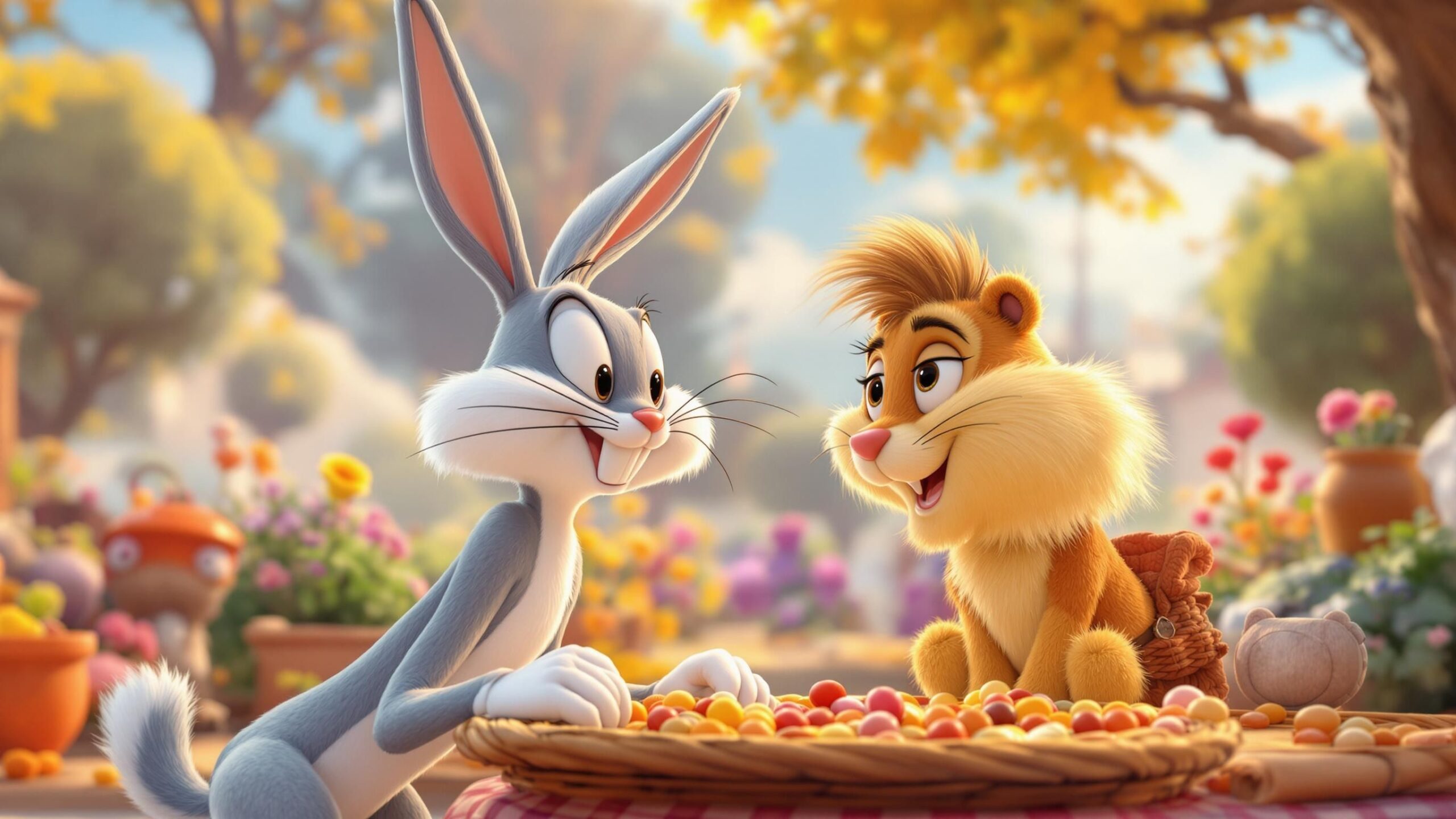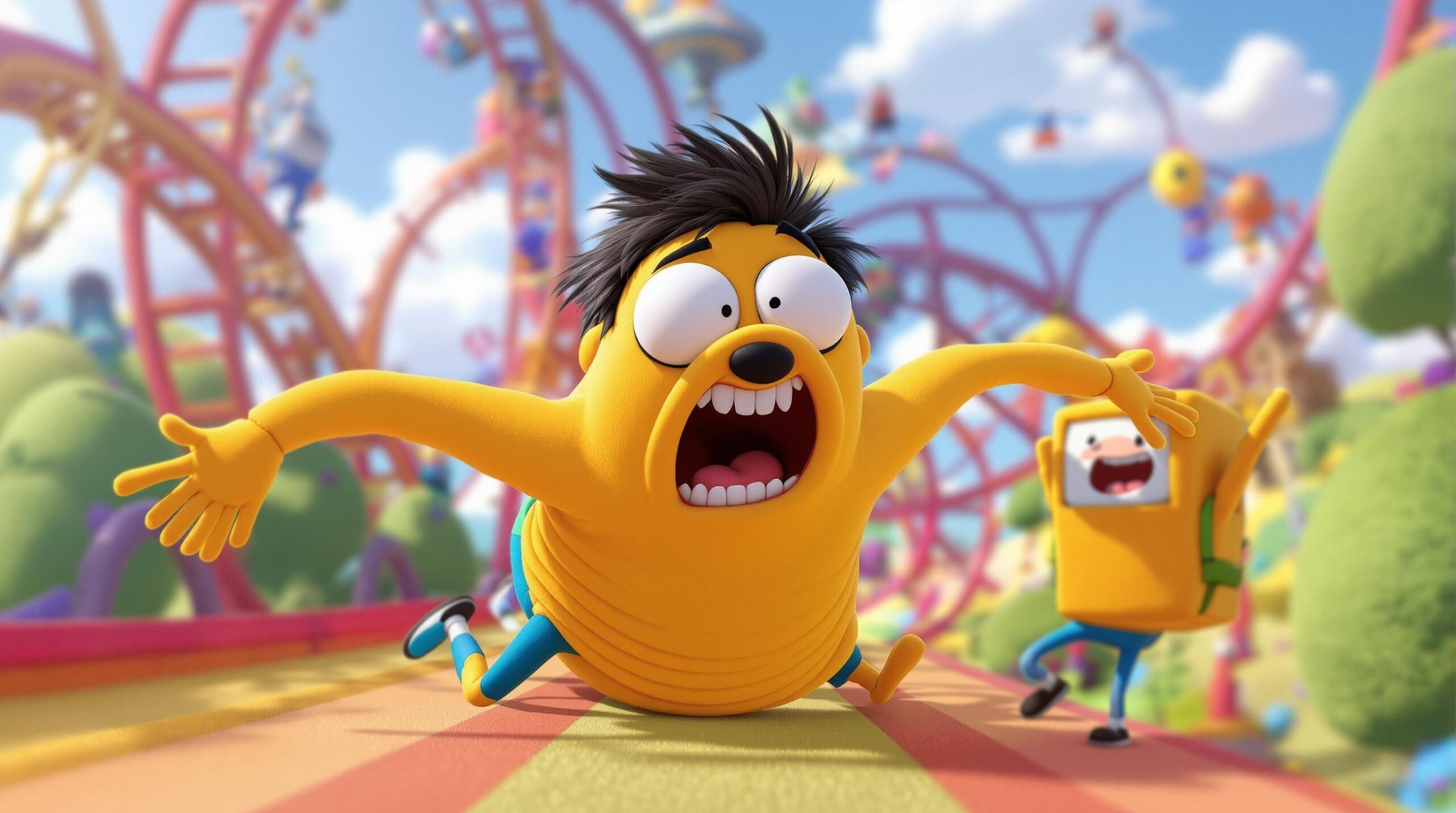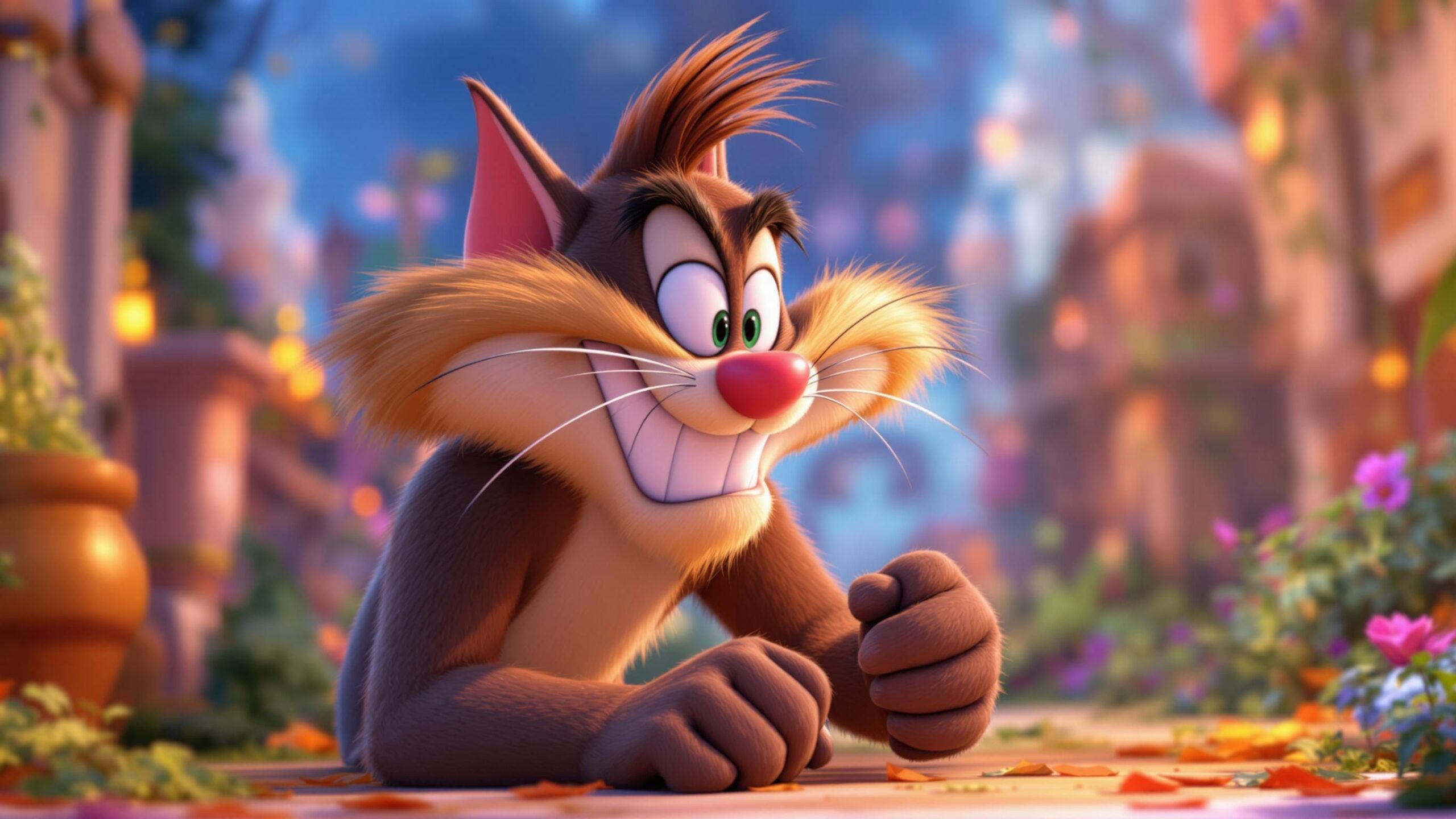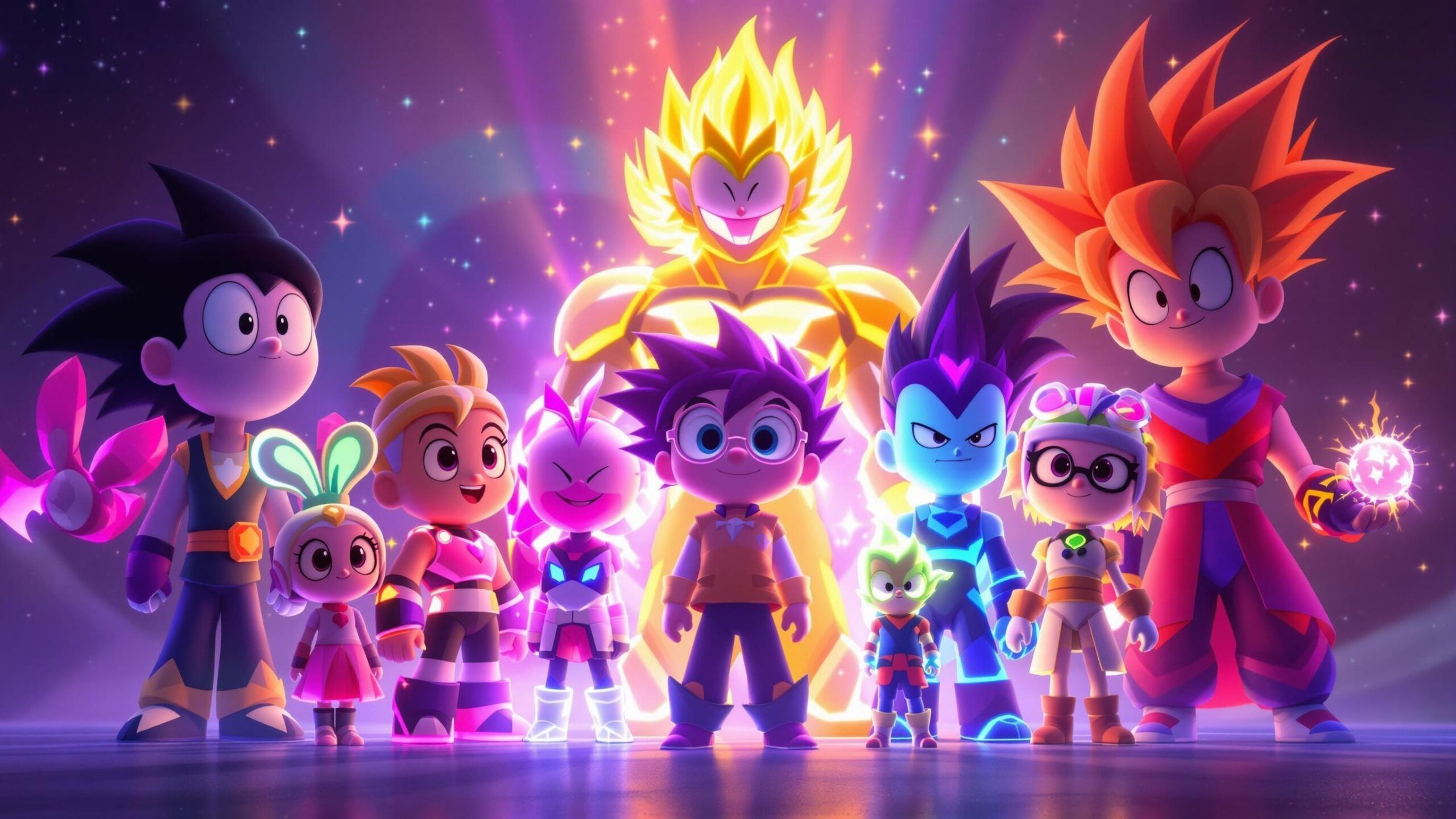When it comes to legendary cartoon characters, Bugs Bunny is in a league of his own. With a Brooklyn accent, a carrot in hand, and a smirk that could stop Elmer Fudd mid-chase, Bugs isn’t just a mischievous rabbit—he’s a cultural icon. What really sets Bugs apart from his animated peers isn’t just his clever schemes or slapstick timing; it’s his razor-sharp wit. Bugs doesn’t just outsmart his foes—he talks them into defeat, often with a single unforgettable line. Over decades of Looney Tunes madness, Bugs has delivered some of the funniest, most quotable one-liners in animation history, turning everyday moments into comedy gold and elevating wisecracks into an art form. Whether he’s tricking hunters, battling opera singers, or being catapulted into space, Bugs always knows exactly what to say—and he delivers it with cool, casual confidence that makes the chaos all the funnier. These ten iconic zingers didn’t just make us laugh—they made Bugs Bunny a legend.
#10: “Of course you realize this means war.”
This line is the Bugs Bunny equivalent of a battle cry—a calm, cool, deadly serious warning that the gloves are off and someone is about to get thoroughly outwitted. First uttered in Duck Soup to Nuts (1944) and reused in dozens of cartoons, “Of course you realize this means war” is a classic moment where Bugs pivots from playful pest to full-blown schemer. The line, delivered with measured calm and dramatic pause, usually follows a scene where Bugs has been pushed just a little too far—he’s been shot at, flattened, or insulted, and now it’s personal.
The brilliance of this one-liner lies in its tone. Bugs doesn’t scream it. He doesn’t rage. He simply says it like he’s announcing a business decision. That’s what makes it so funny. Instead of an explosion of anger, it’s a moment of composed declaration, as if he’s saying, “Well, now you’ve gone and done it, and I’m going to ruin you—politely.” And sure enough, once this line is spoken, you know whoever crossed him is in for a world of clever traps, disguises, and psychological warfare.
Interestingly, the phrase is also a direct parody of old World War II-era melodramas and propaganda films. Bugs, ever the satirist, borrowed it from the kinds of movies where characters would announce a national or personal vendetta with intense drama. By applying that over-the-top seriousness to something like being mildly inconvenienced by Elmer Fudd or Daffy Duck, Bugs subverts the trope into comedy gold.
One particularly memorable use of this line occurs in Ballot Box Bunny (1951), where Bugs is running against Yosemite Sam in a mayoral race. After Sam tries to blow him up (using the classic campaign strategy of TNT), Bugs brushes off the soot, fixes his fur, and solemnly declares, “Of course you realize this means war.” What follows is one of the funniest political takedowns in cartoon history, as Bugs completely dismantles Sam’s campaign with fake endorsements, rigged ballots, and slapstick debates—all with that trademark smug charm.
Another gem is in Hare Trigger (1945), where Bugs goes up against Yosemite Sam on a runaway train. After being threatened repeatedly, Bugs doesn’t retaliate immediately. Instead, he calmly delivers the line and then proceeds to torment Sam with trapdoors, disguises, and absurd antics. It’s Bugs at his most calculating and theatrical.
What’s also fascinating is how the line has transcended cartoons. It’s been quoted in TV shows, movies, and even by real-life figures, becoming shorthand for a humorous but serious escalation. That’s the magic of Bugs Bunny—his lines aren’t just funny, they stick. They become part of our cultural language.
Ultimately, “Of course you realize this means war” is more than just a one-liner—it’s a promise. A promise that Bugs Bunny is about to take things to the next level, and whoever’s on the other side is in way over their head. Delivered with a sly smirk and a carrot crunch, it’s the line that announces Bugs isn’t just playing around anymore. And it’s one of the many reasons he’s not just a rabbit—he’s a legend.
#9: “Eh, what’s up, doc?”
It’s the line that launched a legacy. Bugs Bunny’s most iconic catchphrase, “Eh, what’s up, doc?” first appeared in 1940’s A Wild Hare, directed by Tex Avery. Delivered casually as Bugs nonchalantly chomped on a carrot while facing down Elmer Fudd’s rifle, this line wasn’t just funny—it was revolutionary. Up until that moment, cartoon characters didn’t typically greet danger with laid-back cool. Bugs changed that forever.
The humor of “Eh, what’s up, doc?” lies in its absurd understatement. Here’s a rabbit being hunted, staring down a loaded gun, and he acts like Elmer’s just inconvenienced him in the produce aisle. That nonchalance flipped the predator-prey relationship on its head and instantly defined Bugs’ entire persona: unbothered, street-smart, and always one step ahead.
What makes the line even more hilarious is its cultural context. Tex Avery, a Texas native, used the phrase from his own high school days— “What’s up, doc?” was regional teen slang, not something cartoon characters were supposed to say. It sounded natural and unscripted, which gave Bugs an authenticity audience hadn’t heard before. The “Eh” at the beginning added even more charm—it felt offhand, like Bugs had all the time in the world. That carrot-munching? A direct nod to Clark Gable in It Happened One Night, where Gable chomps on a carrot while chatting up Claudette Colbert. Bugs wasn’t just confident—he was cool.
The line became Bugs Bunny’s calling card, appearing in nearly every short and adaptation after. But it never lost its punch. Whether facing off against Elmer, Daffy, Yosemite Sam, or Marvin the Martian, Bugs delivers the phrase with perfect timing—slightly mocking, but always polite. It’s his way of saying, “I know what’s going on here… and I’m still gonna win.”
One of the best uses is in Rabbit Fire (1951), during the infamous “Duck Season/Rabbit Season” exchange. Bugs says it mid-scheme, still chomping on a carrot, completely in control. It’s not just a greeting—it’s a power move.
More than 80 years later, “Eh, what’s up, doc?” remains one of the most recognizable lines in pop culture. It’s been referenced by politicians, rappers, sports stars, and even printed on postage stamps. It’s playful, instantly recognizable, and timeless. And while Bugs has delivered plenty of zingers, this one’s the gold standard.
#8: “Ain’t I a stinker?”
This line, often delivered with a sly wink or a shoulder shrug, is Bugs Bunny’s smug little mic drop. “Ain’t I a stinker?” shows up in dozens of shorts, always after Bugs has pulled off something so outrageous, so audacious, that even he has to step back and admire his own genius. It’s the phrase he tosses out like confetti after dunking on his opponents—and we love him for it.
The humor here is layered. Bugs isn’t just admitting to being a troublemaker—he’s reveling in it. The phrase walks a tightrope between self-awareness and smugness. It acknowledges that he’s causing chaos but also dares you to admit it’s hilarious. And every time he says it; it’s after completely flipping the script on whoever was trying to get the better of him.
In Bugs Bunny Rides Again (1948), after besting Yosemite Sam in a series of ridiculous cowboy showdowns, Bugs leans into the camera with a grin and whispers, “Ain’t I a stinker?” We can’t help but agree. Sam, covered in soot and fury, has no idea what hit him. The line acts like a wink to the audience, breaking the fourth wall just enough to let us know that Bugs is in on the joke. He’s not just a character in the cartoon—he’s running the show.
It’s also worth noting how often this line comes at the end of a gag. After the explosion. After the disguise. After the fadeout. It’s Bugs’ way of signing his work—like a painter scribbling their name on a masterpiece of mischief. It never feels forced because it fits Bugs’ personality so perfectly: the mischievous little guy who outwits the bully every time, then drops a snarky one-liner to cap it all off.
There’s even something revolutionary about it. In an era when cartoon protagonists were often bumbling or overly wholesome, Bugs was cool, clever, and just a little bit cocky. “Ain’t I a stinker?” is a celebration of that attitude. It’s Bugs owning his role as the lovable trickster, someone who bends the rules but somehow never breaks our trust.
This line also gave Looney Tunes permission to be self-aware and meta long before that became trendy. Bugs was the first cartoon character to make us feel like he was in on the joke with us—and “Ain’t I a stinker?” is the purest expression of that. It’s cheeky, iconic, and perfectly Bugs.
#7: “I knew I shoulda taken that left turn at Albuquerque.”
No line captures Bugs Bunny’s wandering, wrong-place-at-the-wrong-time misadventures quite like this one. “I knew I shoulda taken that left turn at Albuquerque” became a running gag across multiple shorts and solidified itself as one of Bugs’ funniest and most enduring one-liners. Often uttered while Bugs emerges from underground in the completely wrong location—whether it’s the Arctic, ancient Rome, or the middle of a monster’s lair—this line is both wildly quotable and surprisingly relatable.
First used in Herr Meets Hare (1945), the phrase is typically delivered with nonchalant confusion. Bugs pops out of the ground, surveys the bizarre setting, then mutters the line while chewing on a carrot, as if the whole situation is just mildly inconvenient. It’s that casual delivery that sells it. He’s not panicked or even annoyed—just slightly perturbed that he messed up his internal GPS.
What’s brilliant about the line is how it transforms a simple navigational error into a timeless catchphrase. It doesn’t matter where Bugs ends up—outer space, Transylvania, or in front of Genghis Khan—the line fits every time. It’s absurd yet oddly grounded in something everyone’s experienced: taking a wrong turn and wondering how you ended up somewhere ridiculous.
In Ali Baba Bunny (1957), Bugs and Daffy emerge from the sand in the middle of a treasure cave instead of Pismo Beach. Bugs mutters the classic line, unfazed, while Daffy freaks out over the gold. That perfect contrast between Bugs’ cool detachment and the insanity of the situation makes it even funnier.
Beyond the laughs, the phrase has had surprising cultural longevity. It’s been used in everything from The Simpsons to Star Trek, and even referenced in real-life travel blogs, road signs, and T-shirts. Bugs inadvertently created one of the earliest and most beloved memes—long before the internet was even a concept.
The line captures something essential about Bugs Bunny’s character. He’s adventurous, adaptable, and totally unfazed by chaos. No matter how far off-course he gets, he’ll figure it out. And if he ends up in the wrong place? Well, at least it makes for a good joke. “I knew I shoulda taken that left turn at Albuquerque” isn’t just a punchline—it’s a philosophy of life, delivered by a rabbit who always lands on his feet.
#6: “He don’t know me vewy well, do he?”
This line—delivered in Bugs’ finest mock-innocent baby voice—is the ultimate comedic jab. “He don’t know me vewy well, do he?” is usually Bugs’ follow-up after someone underestimates him, threatens him, or tries to get the jump on him. Spoiler: it never works. The beauty of this line is how Bugs uses it to lull his enemies into a false sense of superiority… right before completely outsmarting them.
First appearing in Rabbit’s Kin (1952), the phrase is spoken in a soft, high-pitched voice while Bugs is in disguise. He’s pretending to be a sweet, helpless little bunny in front of a muscle-bound mobster named Pete Puma. But when Puma turns around, Bugs drops the act and goes full Bugs mode—traps, tricks, and cartoon violence included. The line becomes a warning, disguised as a whisper: “You really messed with the wrong rabbit.”
The comedic brilliance of this one-liner is in its irony. Bugs wants his enemies to think he’s weak. He uses their assumptions against them. When he says, “He don’t know me vewy well, do he?” we know Bugs is about to flip the script in the most delightful way possible.
This line also shows off Bugs’ love of playing roles. He’s the ultimate actor, and he’s just as comfortable in a baby bonnet as he is in a tuxedo or opera gown. His mastery of disguise isn’t just physical—it’s vocal. He switches tones and mannerisms effortlessly, and this line is a prime example of his ability to weaponize cuteness for comedy.
It’s also one of those phrases that’s found life beyond the cartoons. Fans and comedians alike have borrowed it over the years, using it to sarcastically imply someone’s made a huge mistake. That kind of staying power speaks to just how perfect the line is—it’s short, punchy, funny, and completely Bugs.
Whether he’s dealing with hunters, monsters, or aliens, Bugs uses “He don’t know me vewy well, do he?” as a reminder that behind every harmless bunny disguise is the most cunning character in the Looney Tunes universe. It’s Bugs at his sneakiest—and funniest.
#5: “This means war!”
Yes, we’ve already touched on a version of this line in #10, but the full-throttle “This means war!” deserves its own spotlight. When Bugs shouts it, often after being pushed too far, it becomes an explosive, dramatic, and utterly hilarious declaration. The tone shifts from laid-back to militant, often accompanied by music, military marches, or sudden costume changes. Bugs doesn’t just say “This means war”—he launches into it.
Used in cartoons like Hare Tonic (1945), Rebel Rabbit (1949), and Bunker Hill Bunny (1950), this line signals Bugs’ transformation from passive rabbit to strategic mastermind. It’s usually triggered by someone insulting him, underestimating him, or—worst of all—messing with his pride. From that moment on, the cartoon becomes a battlefield, with Bugs launching into full-blown retaliation mode.
In Rebel Rabbit, when Bugs hears that rabbits are considered “harmless,” he’s outraged. “Harmless, huh?! I’ll show them!” he shouts. And then he proceeds to cause mayhem across the United States, from dismantling the Panama Canal to painting the Washington Monument plaid. All because someone doubted him.
What makes this line so funny is the sheer escalation. Bugs doesn’t go for minor payback—he goes nuclear. He doesn’t just prank his enemies—he humiliates them, buries them in dynamite, and makes them question reality. The gap between the slight offense and the epic response is where the comedy lives.
“This means war!” is Bugs’ flex. It’s him saying, “You wanted to play rough? Let’s play.” And every time he says it; we know things are about to get outrageously entertaining.
#4: “You realize, of course, this means war.”
Bugs Bunny doesn’t just declare war—he announces it with perfect dramatic flair. “You realize, of course, this means war” is one of those lines that toes the line between parody and punchline, and it’s made all the better by Bugs’ sophisticated delivery. It’s one of his most quoted phrases, said with a calm authority that somehow makes what follows all the more absurd and hilarious. The line is like a ceremonial bell toll for the opponent—formal, polite, and terrifying if you know what’s coming next.
A variation of the #10 entry, this version emphasizes just how calculated Bugs can be. The “you realize, of course” adds a layer of dramatic gravitas. It sounds like it belongs in a courtroom or an international peace treaty. Delivered by a bunny chewing on a carrot? It’s pure comedic brilliance.
The phrase was inspired by the kind of melodramatic dialogue found in old Hollywood war movies and gangster flicks. Bugs’ genius is that he borrows that serious tone and then applies it to cartoon-level conflicts—someone stepped on his hole, stole his carrot, or insulted his species. Suddenly, he’s not just annoyed—he’s issuing a formal declaration of vengeance. And the laughs come fast after that.
One classic use is in Bunker Hill Bunny (1950), where Bugs faces off against Yosemite Sam in a Revolutionary War spoof. After being fired upon for simply waving a white flag, Bugs straightens his collar, wipes the soot from his fur, and says with grim dignity, “You realize, of course, this means war.” What follows is a hilariously elaborate series of counterattacks involving dynamite, cannons, and trench warfare—all cartoon-style.
There’s something charmingly over-the-top about this line because it shows that Bugs doesn’t get mad—he gets theatrical. His revenge is never sloppy or rushed. It’s an art form. He plans, he performs, and he makes sure we enjoy every second. And this line is the opening note in that symphony of sabotage.
The reason it’s so iconic? It tells the audience exactly what kind of Bugs we’re dealing with: not just the prankster, but the tactician. It’s the cool-headed warning before the storm. And when Bugs gives a warning like that, you can be sure the storm will be stylish, explosive, and filled with gags no one sees coming.
#3: “I’m not a rabbit, I’m a shmeerp.”
Bugs Bunny’s brilliance isn’t just in his delivery—it’s in his ability to lie, improvise, and gaslight with the smooth confidence of a con artist in a tuxedo. One of his most underrated and absurdly funny lines is: “I’m not a rabbit, I’m a shmeerp.” It’s peak Bugs—nonsensical, fast-talking, and delivered with a straight face to completely throw off his enemies.
This line appears in Hare Brush (1955), a cartoon where Elmer Fudd is declared legally insane for thinking he’s a rabbit, while Bugs (the actual rabbit) swaps clothes with him and ends up being declared sane. When Elmer insists, he’s chasing a rabbit, Bugs—now in a business suit—deadpans, “I’m not a rabbit, I’m a shmeerp.” And the punchline? The psychiatrists believe him.
This moment is a perfect showcase of Bugs’ manipulative genius. He doesn’t just hide from trouble—he out-argues it. His words are weapons, and he knows how to use them. “Shmeerp” isn’t even a real word, but the way Bugs delivers it, you’d think it was a scientific classification. The scene also lampoons bureaucracy and blind authority figures—if Bugs wears a tie and speaks confidently, people just assume he’s right.
It’s a hidden gem of a one-liner because it captures a core element of Bugs’ humor: he doesn’t fight fire with fire. He fights it with absolute nonsense—and makes it stick. He redefines reality through sheer willpower and charm. And by the time anyone realizes what just happened, he’s already three steps ahead.
The line has had surprising staying power among hardcore Looney Tunes fans. “Shmeerp” has become an inside joke, even referenced in fan art and merch. It’s a goofy word, yes—but when Bugs says it, it’s almost poetic.
More than just a gag, “I’m not a rabbit, I’m a shmeerp” is a symbol of Bugs’ ability to twist any situation in his favor. It’s absurdism with purpose. And it works because it comes from a character who is never confused—even when he’s making everyone else lose their minds.
#2: “What a maroon!”
“What a maroon!” is Bugs Bunny’s way of calling someone an idiot without ever getting mean. It’s a classic insult, softened by his unique flair and comedic delivery. Bugs hurls it at enemies after they’ve fallen for a trap, walked into a wall, or accidentally detonated their own dynamite. And the magic of this line? It’s more about how Bugs says it than what he says.
This term, a play on the word “moron,” became one of Bugs’ signature put-downs during the 1940s. It’s silly-sounding, vaguely intellectual, and somehow hilarious—especially when Bugs drags out the vowels. “What a ma-roooon!” It hits just the right note between smugness and childlike mockery.
You’ll hear it in classics like Rabbit Seasoning (1952) when Bugs tricks Daffy into getting shot by Elmer again, then mutters the line with a sideways glance to the audience. It’s Bugs at his most cheeky—half judging, half admiring how easy it was to win. The insult never feels cruel because it’s paired with that signature Looney Tunes irreverence. It’s not about hurting feelings—it’s about delivering the perfect roast.
This line is also a cornerstone of Bugs’ identity as the cool, sarcastic foil to hot-tempered opponents. He doesn’t scream or throw punches—he throws shade. “What a maroon” became the blueprint for generations of cartoon snark. From The Simpsons to Animaniacs, you can trace the DNA of Bugs’ verbal jabs in every sarcastic toon that followed.
More than just a silly insult, “What a maroon” encapsulates Bugs’ ability to mock stupidity with charm and style. It’s a roast that doesn’t need swearing, shouting, or cruelty—just a well-timed punchline and a smirk. It’s Bugs doing what he does best: winning the fight and getting the last laugh.
#1: “Ain’t I a little stinker?”
Yes, it’s similar to #8’s “Ain’t I a stinker?” but this variation is special. “Ain’t I a little stinker?” is the original form of the phrase, first appearing in early shorts like Tortoise Beats Hare (1941) and Racketeer Rabbit (1946). It’s Bugs Bunny’s final word after successfully outsmarting everyone in sight. The “little” in the phrase adds that extra dose of fake innocence—like Bugs knows he’s being a menace and absolutely loves it.
It’s the ultimate Looney Tunes closer. After impersonating a mobster, blowing up a rival, or turning a hunter into a pretzel, Bugs breaks the fourth wall, raises an eyebrow, and asks us this question as if he didn’t just cause cartoon-level mayhem. The phrasing is so gentle and sweet, it almost makes you forget he just emotionally dismantled someone. Almost.
This line is often the punctuation mark at the end of some of Bugs’ greatest gags. In Racketeer Rabbit, he takes on gangsters like Edward G. Robinson and Peter Lorre, impersonating them, tricking them, and destroying their hideout—all while giggling and calling himself a “little stinker.” The self-awareness makes the line extra sharp. Bugs doesn’t just know he’s the best—he wants you to know he knows.
And honestly? He’s right. Bugs is a little stinker. He’s the underdog, the rebel, the smart aleck who makes the system look silly. This line sums up his entire persona: clever, cocky, and delightfully dangerous with a punchline. It’s not just his funniest one-liner—it’s his most iconic.
Bugs Bunny’s one-liners are more than just jokes—they’re verbal blueprints of a cartoon genius who could outwit anyone with a smirk and a sentence. Whether he’s calling someone a maroon, playing dumb with a “shmeerp,” or declaring all-out war with sophisticated flair, Bugs delivers lines that are as timeless as they are hilarious. These quotes didn’t just make us laugh—they made Bugs a legend and proved once and for all that in the world of wisecracks, nobody does it better.





